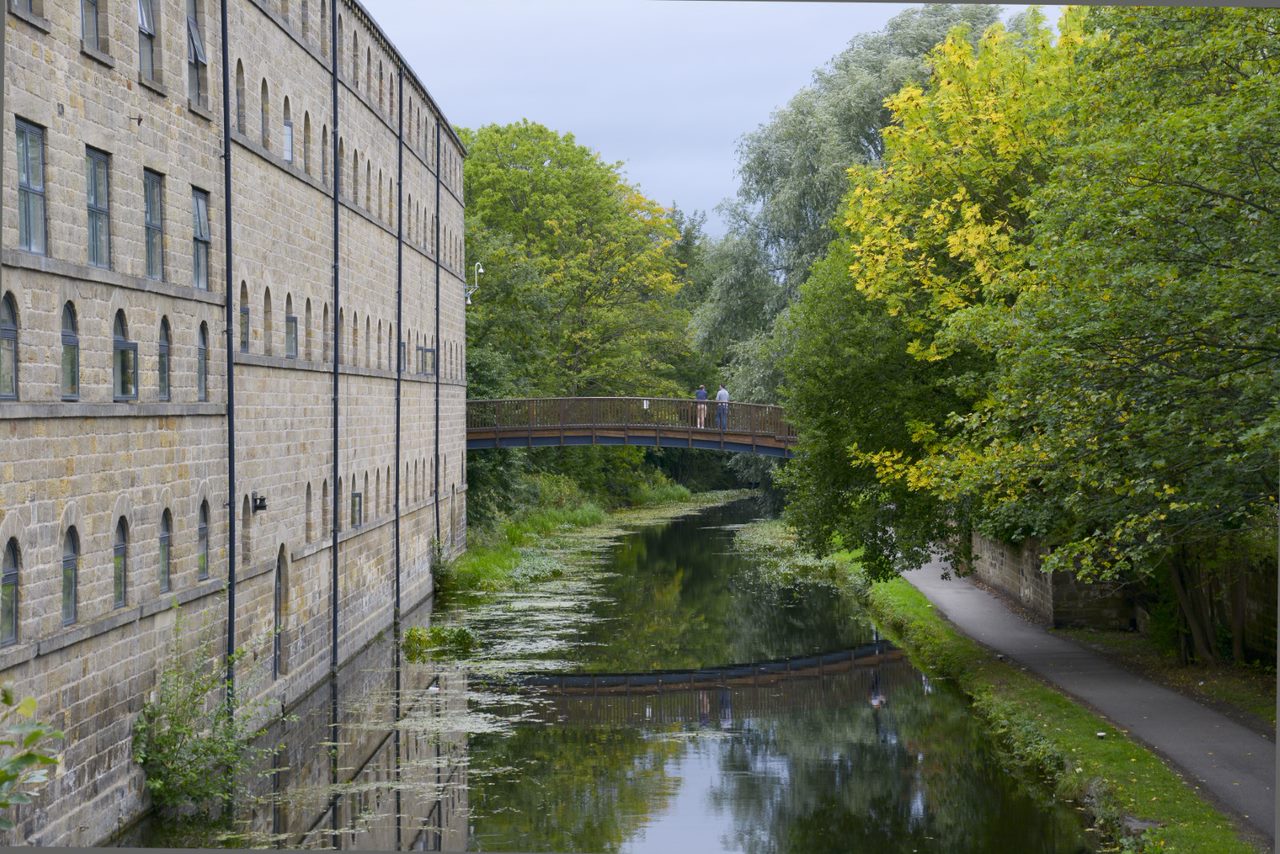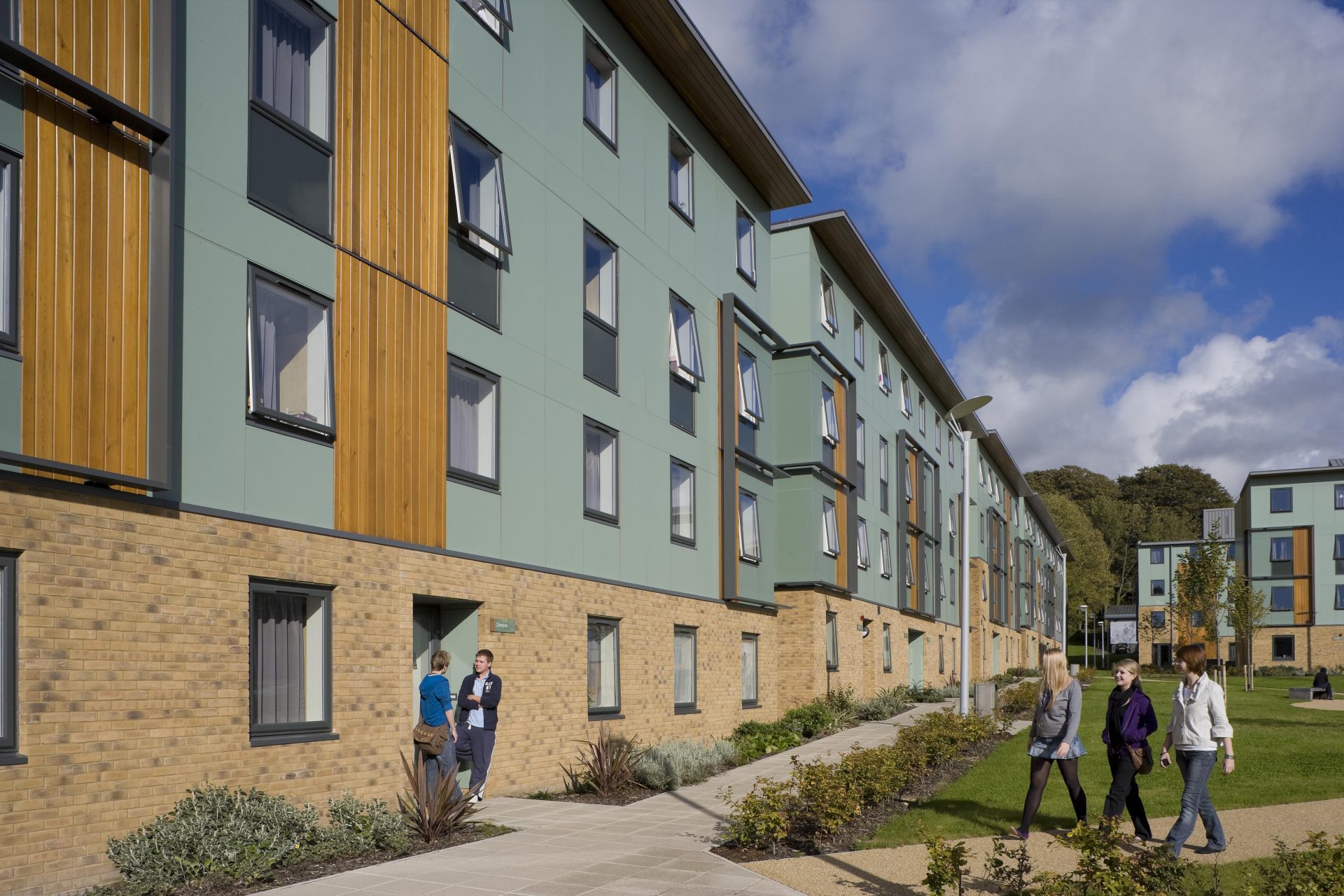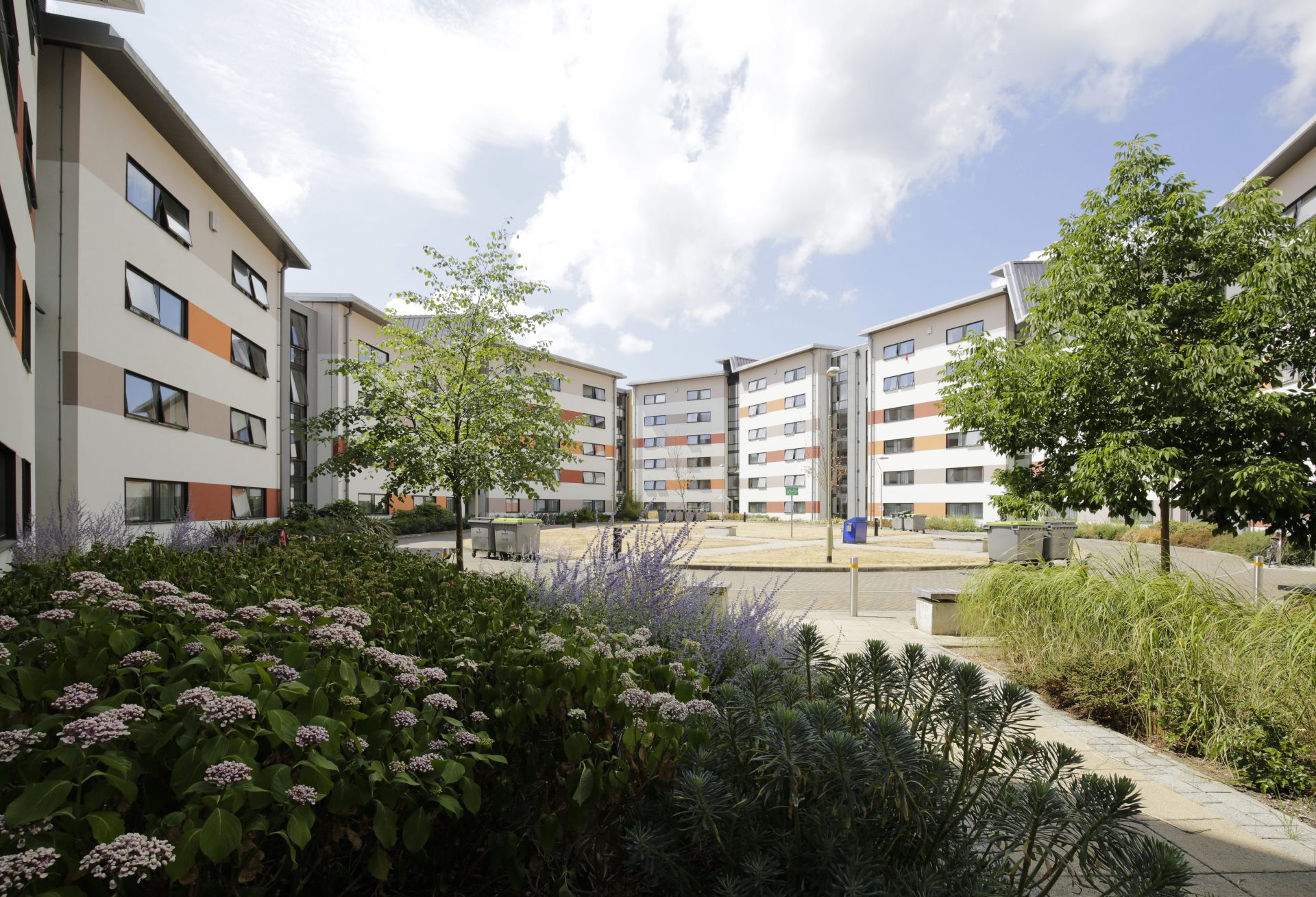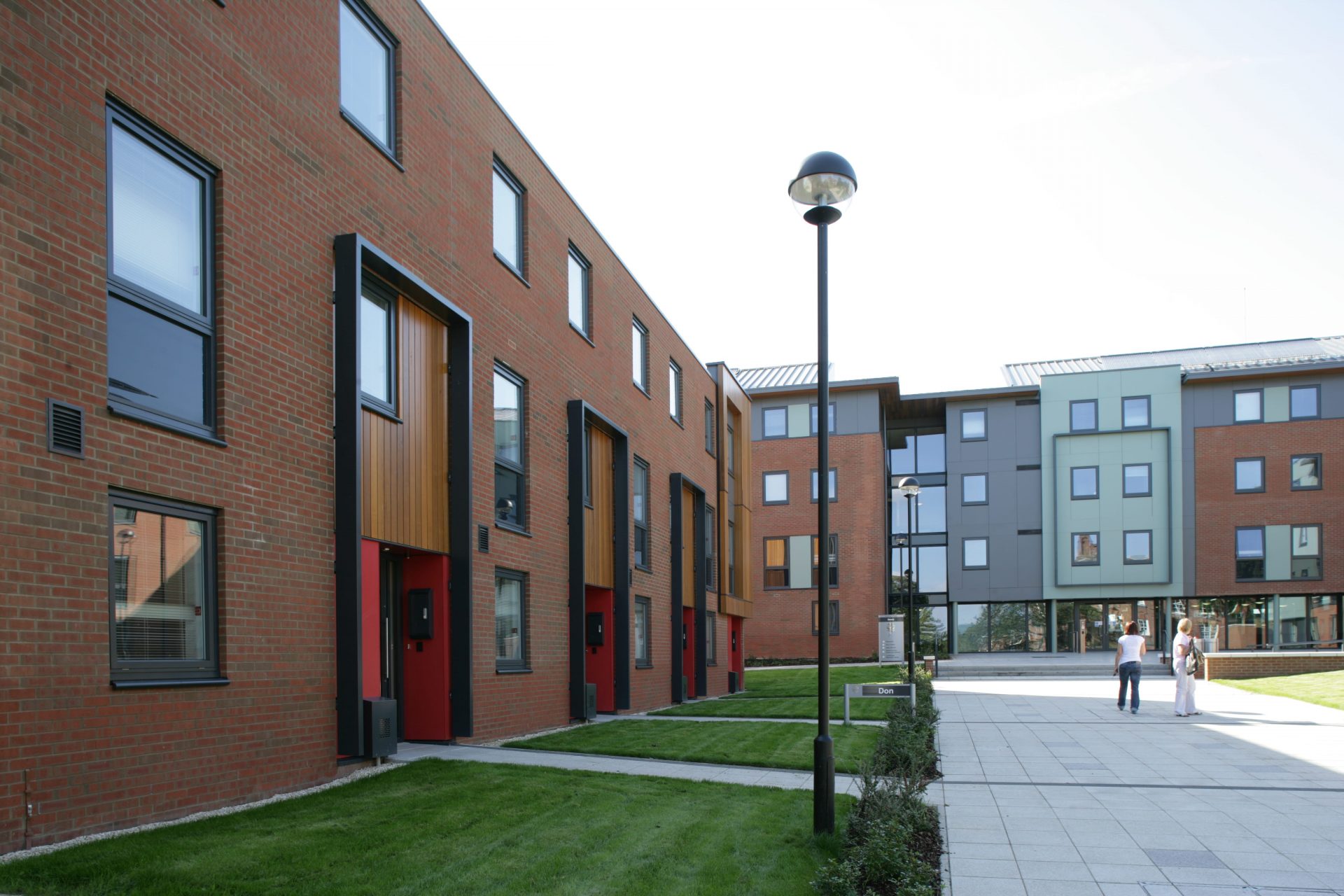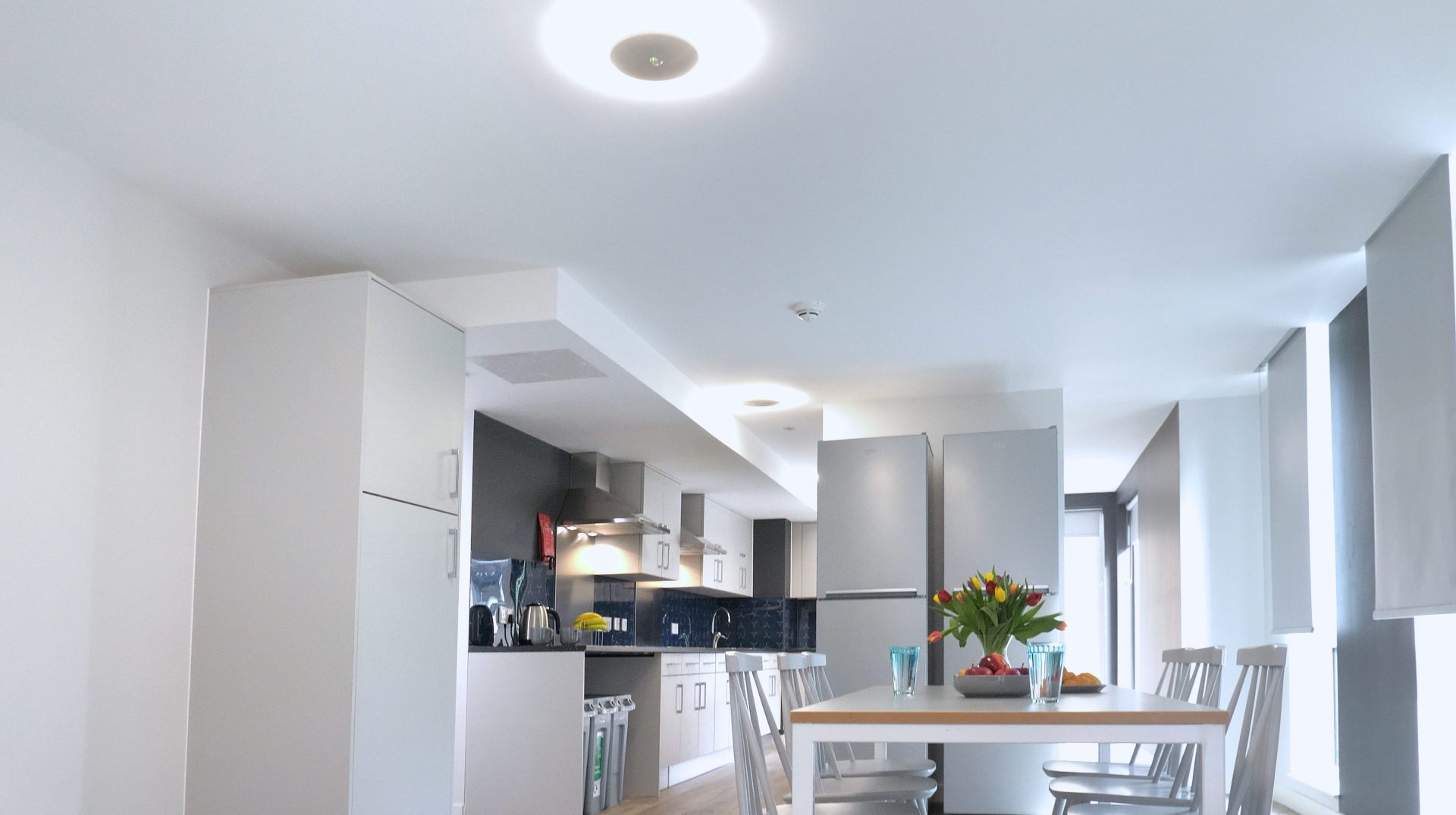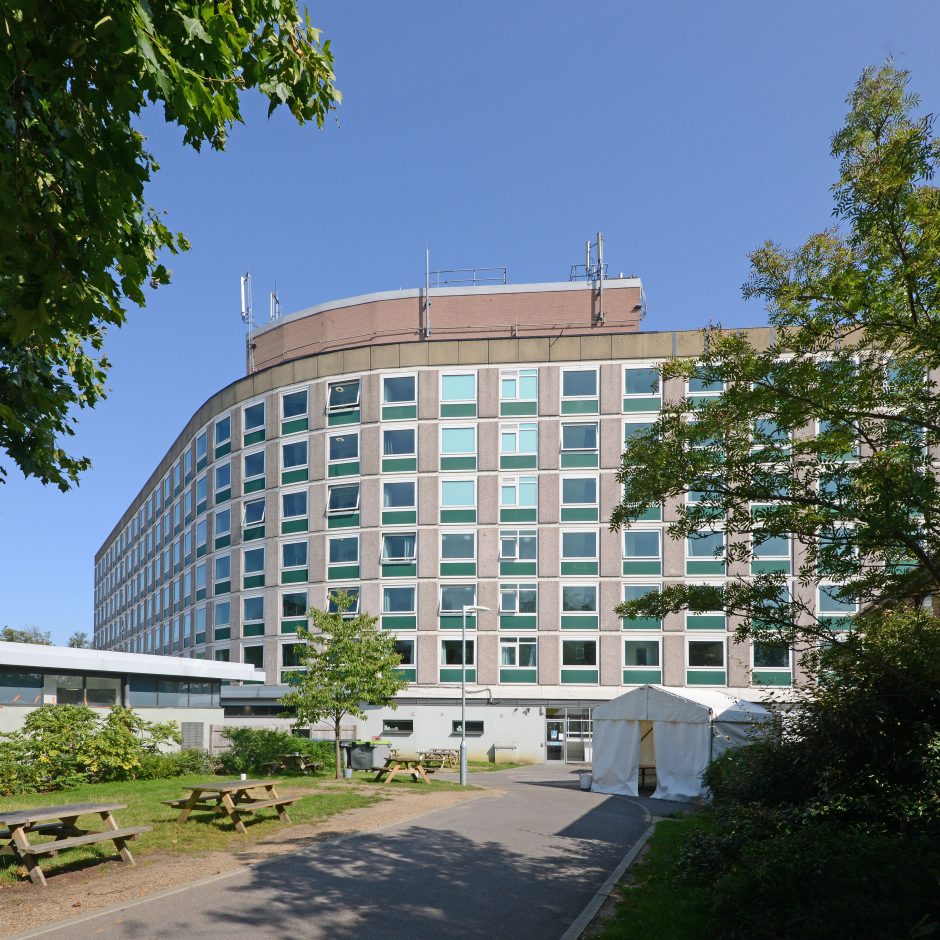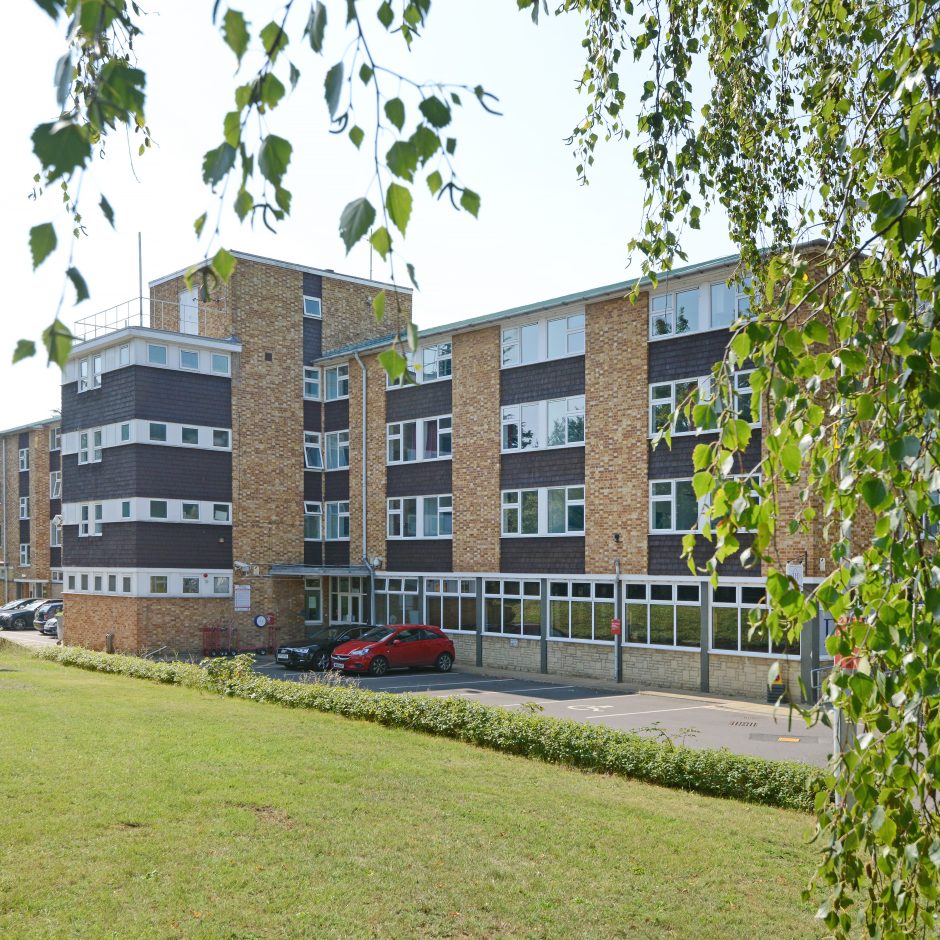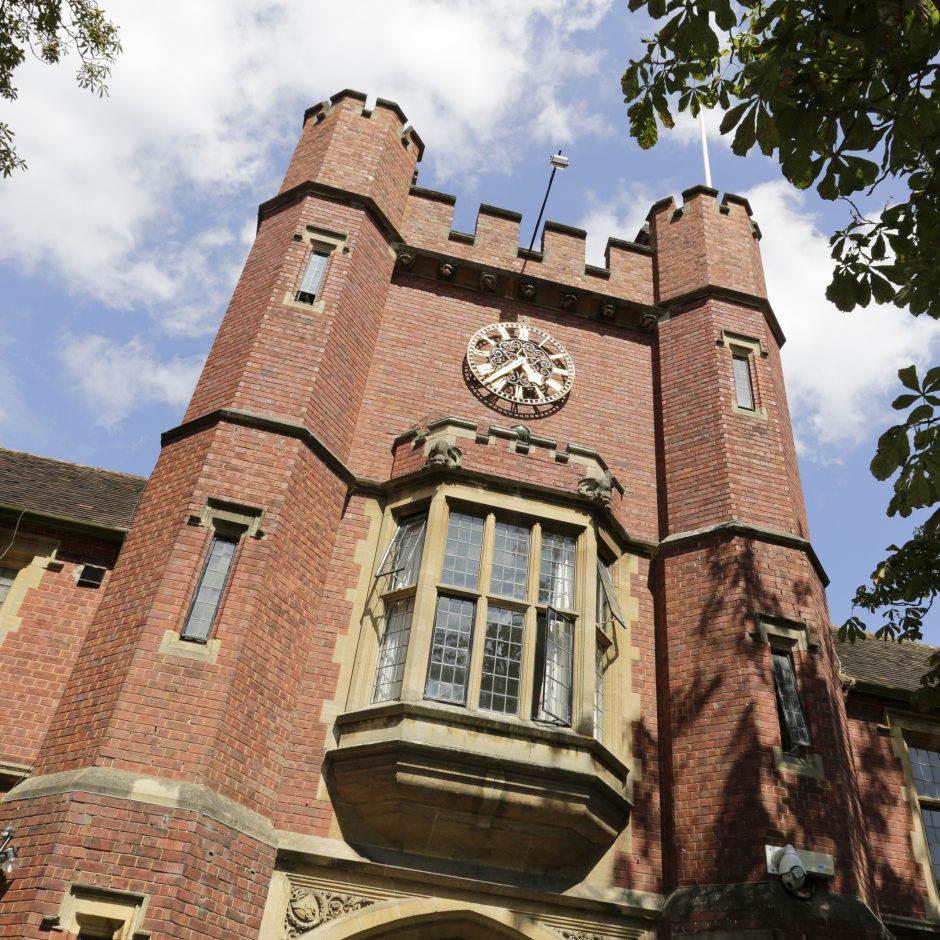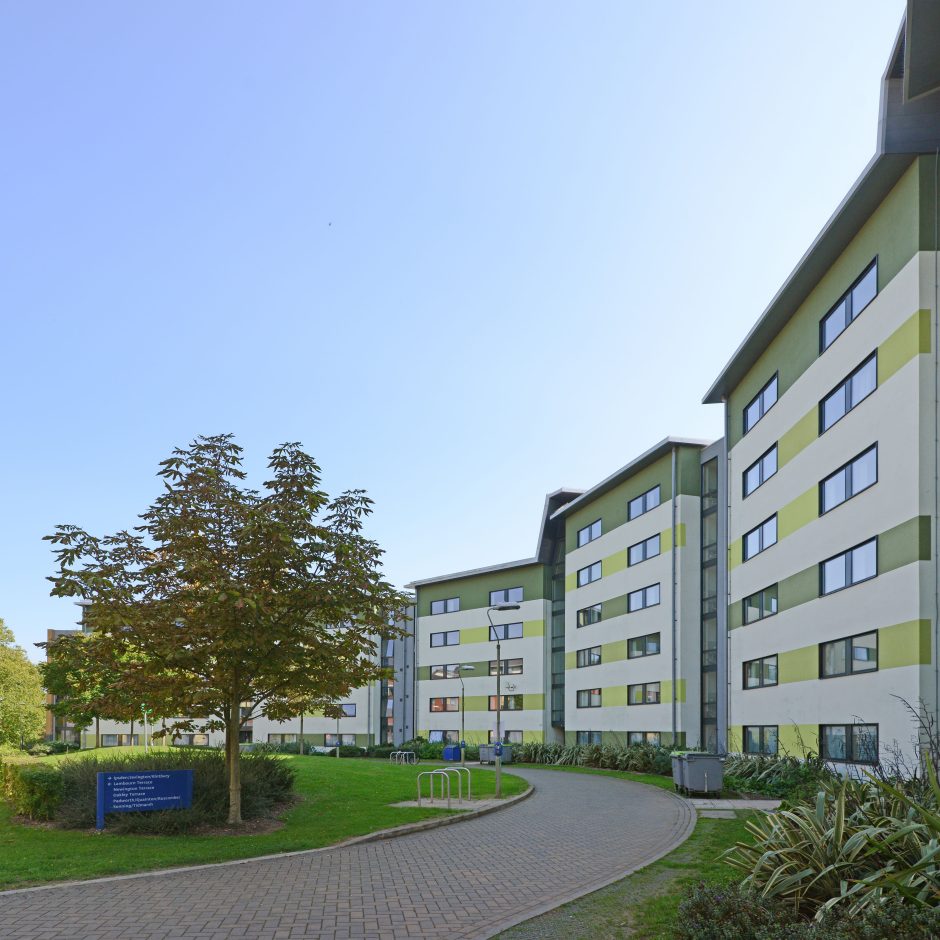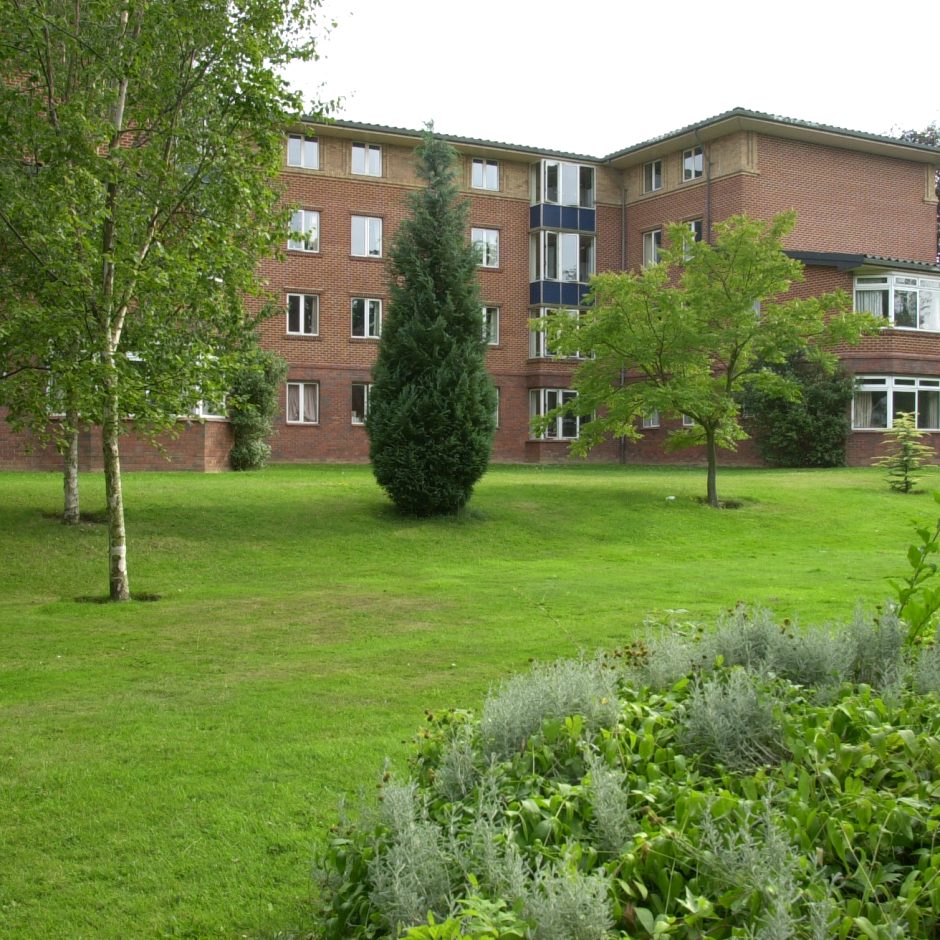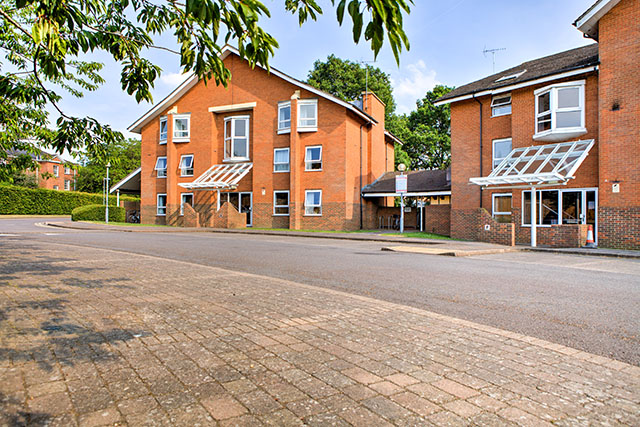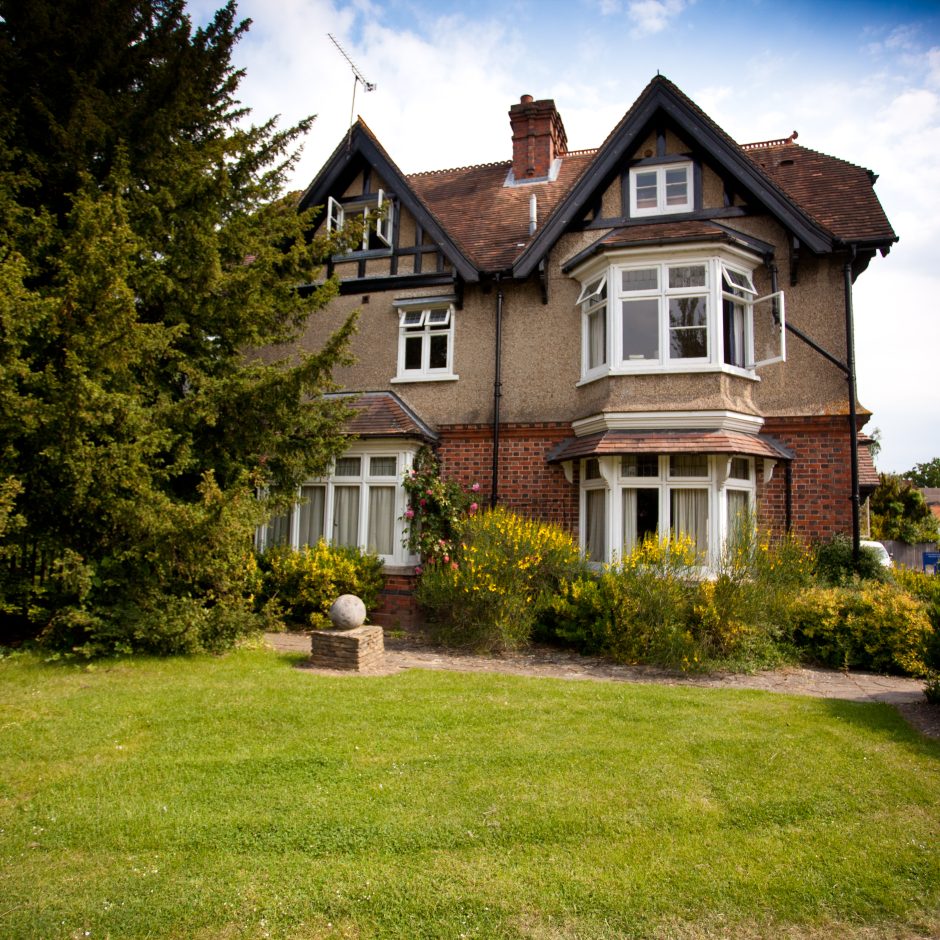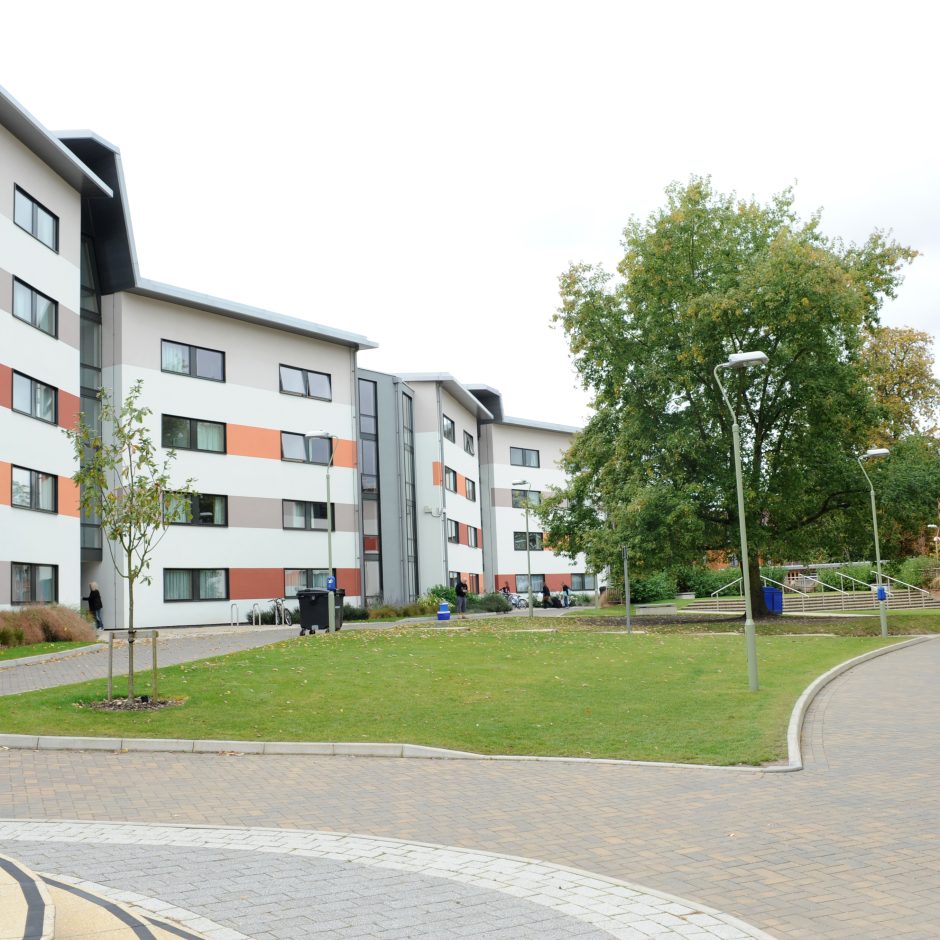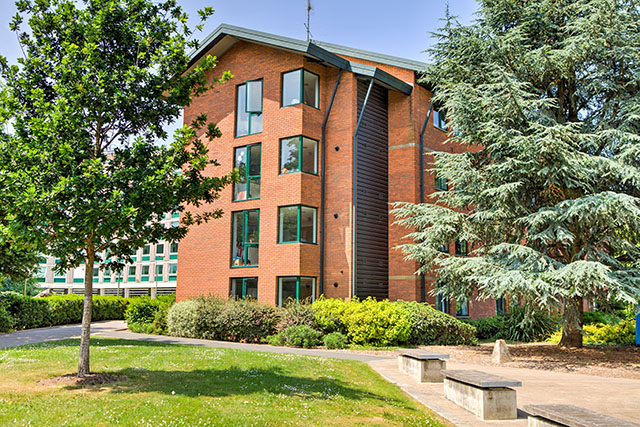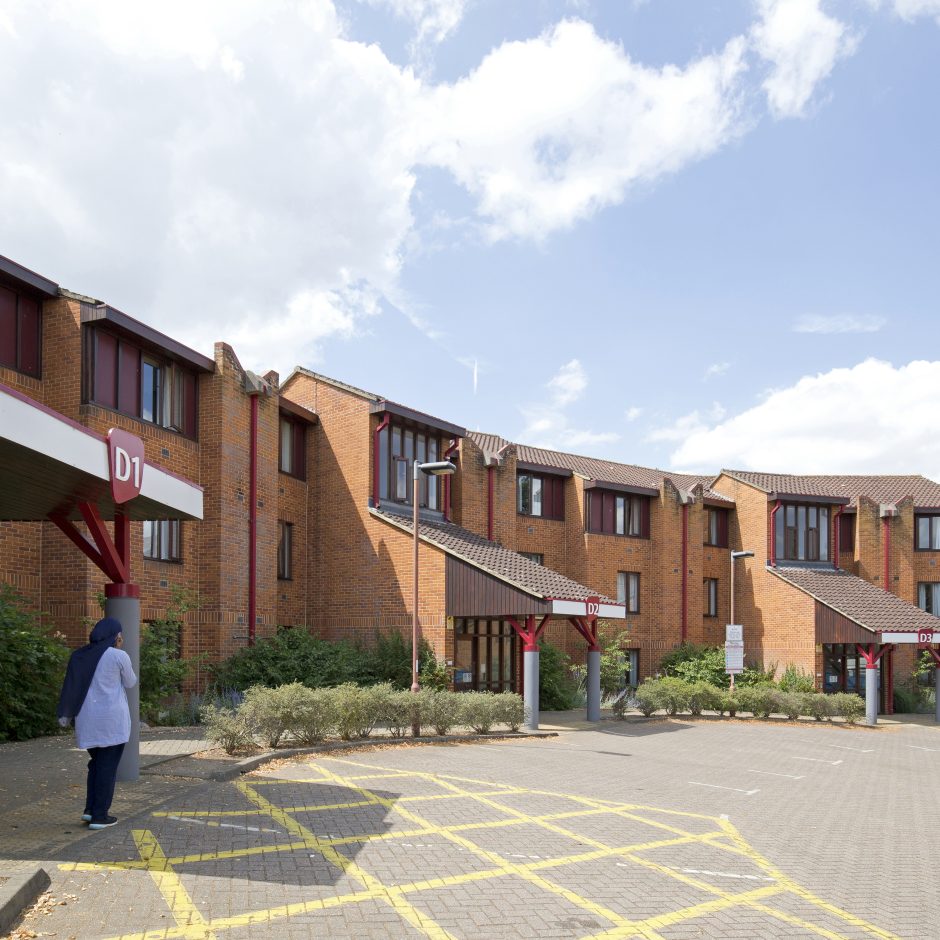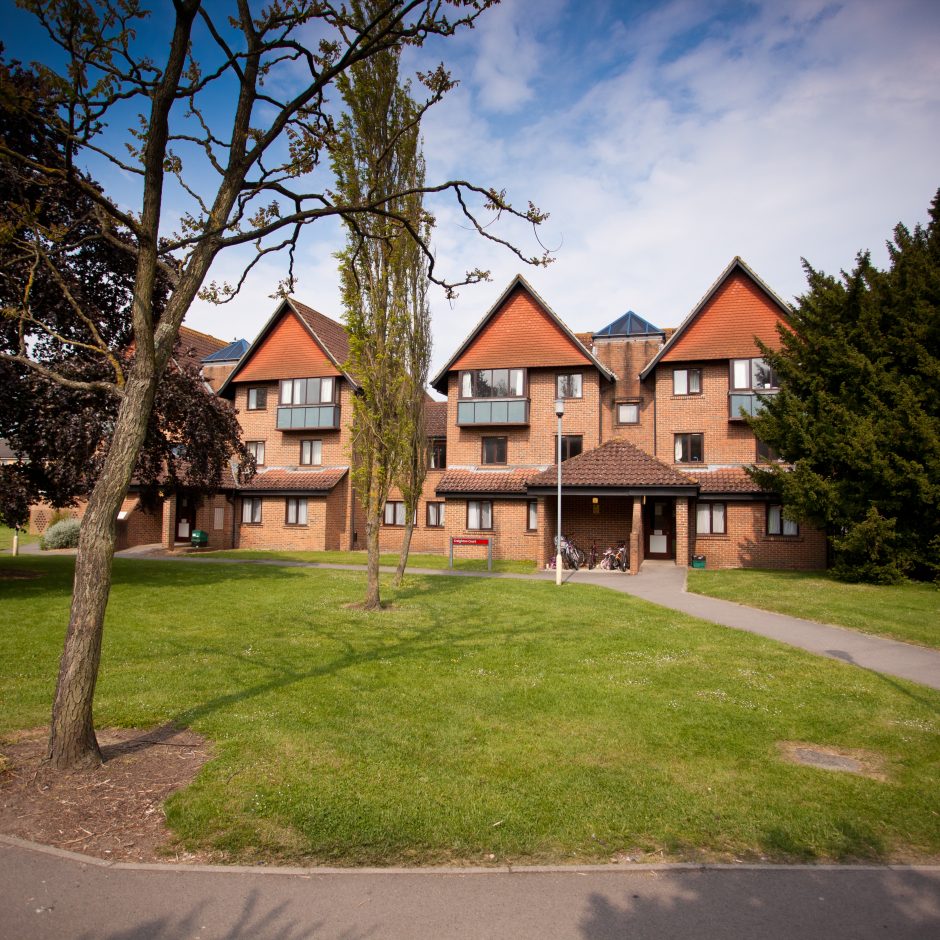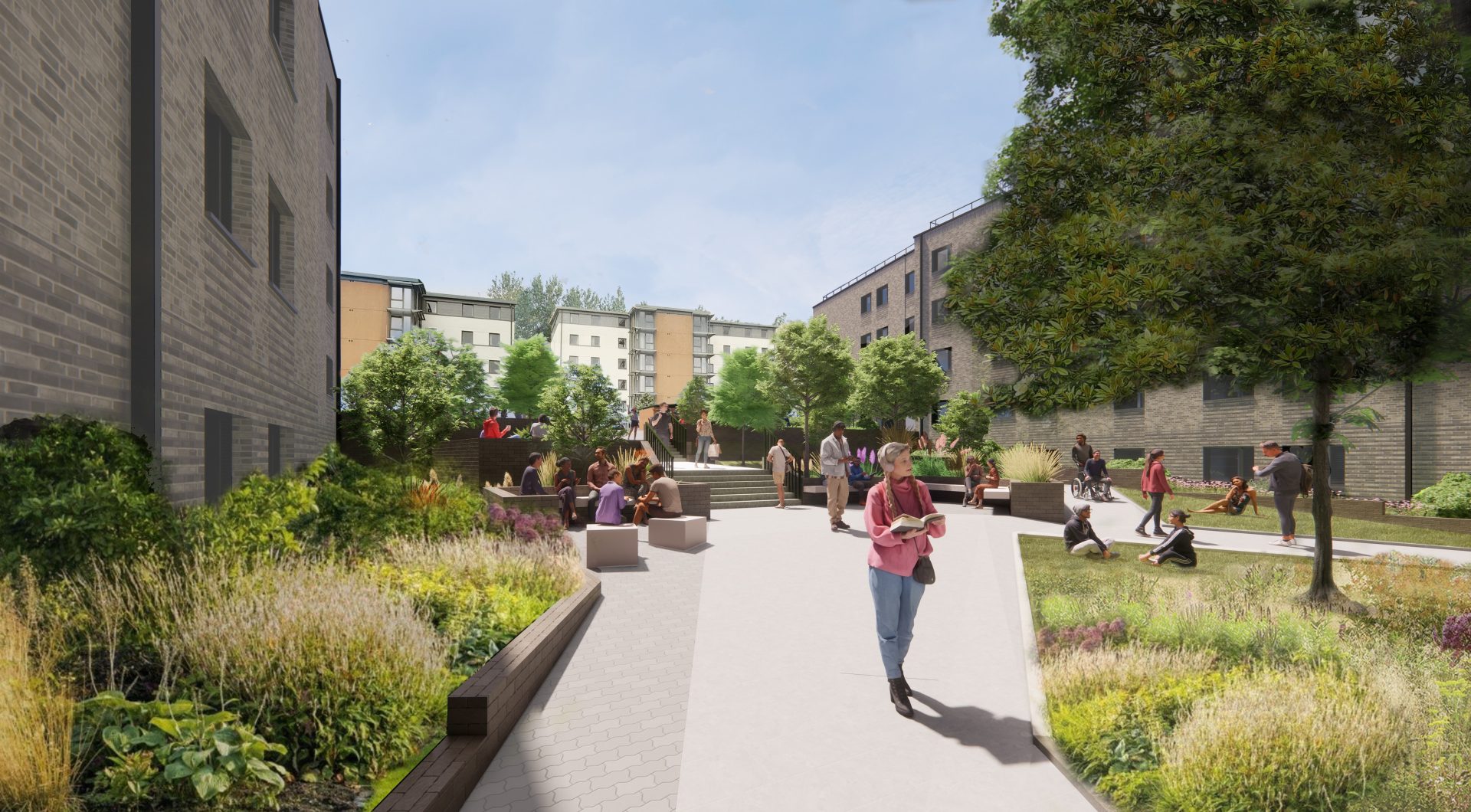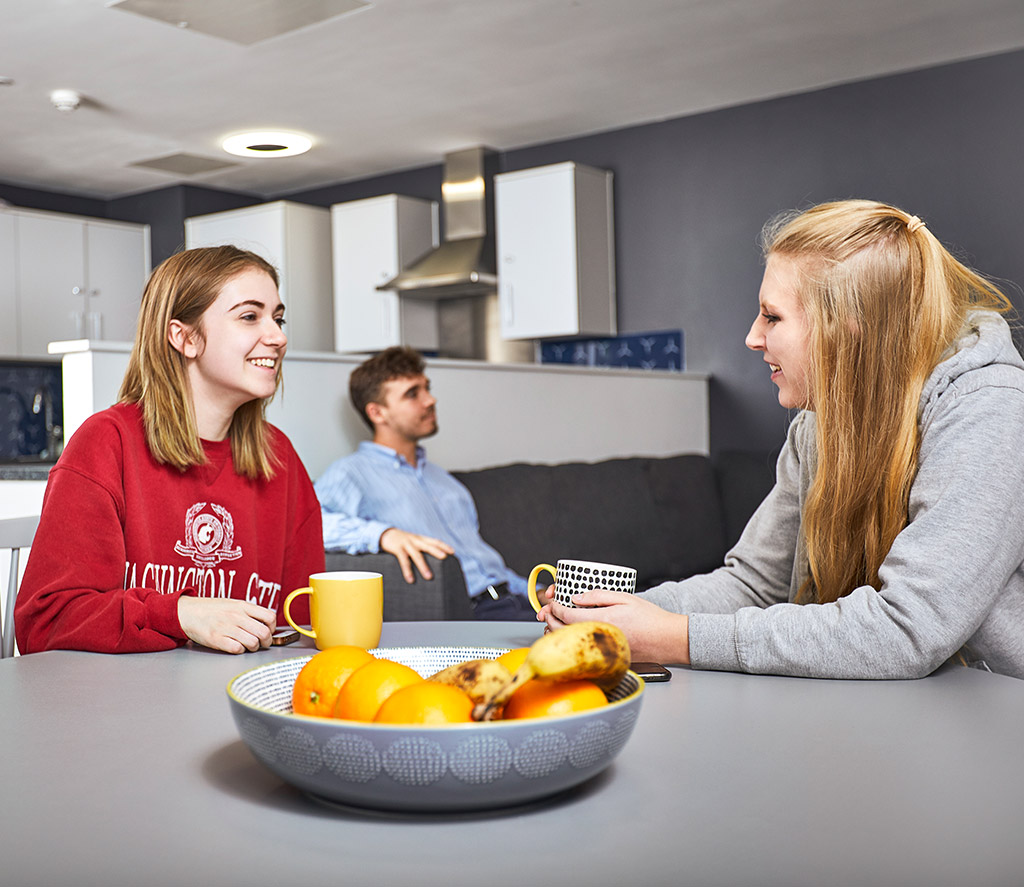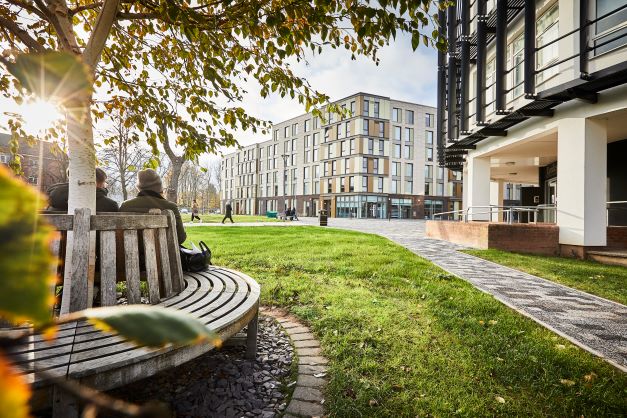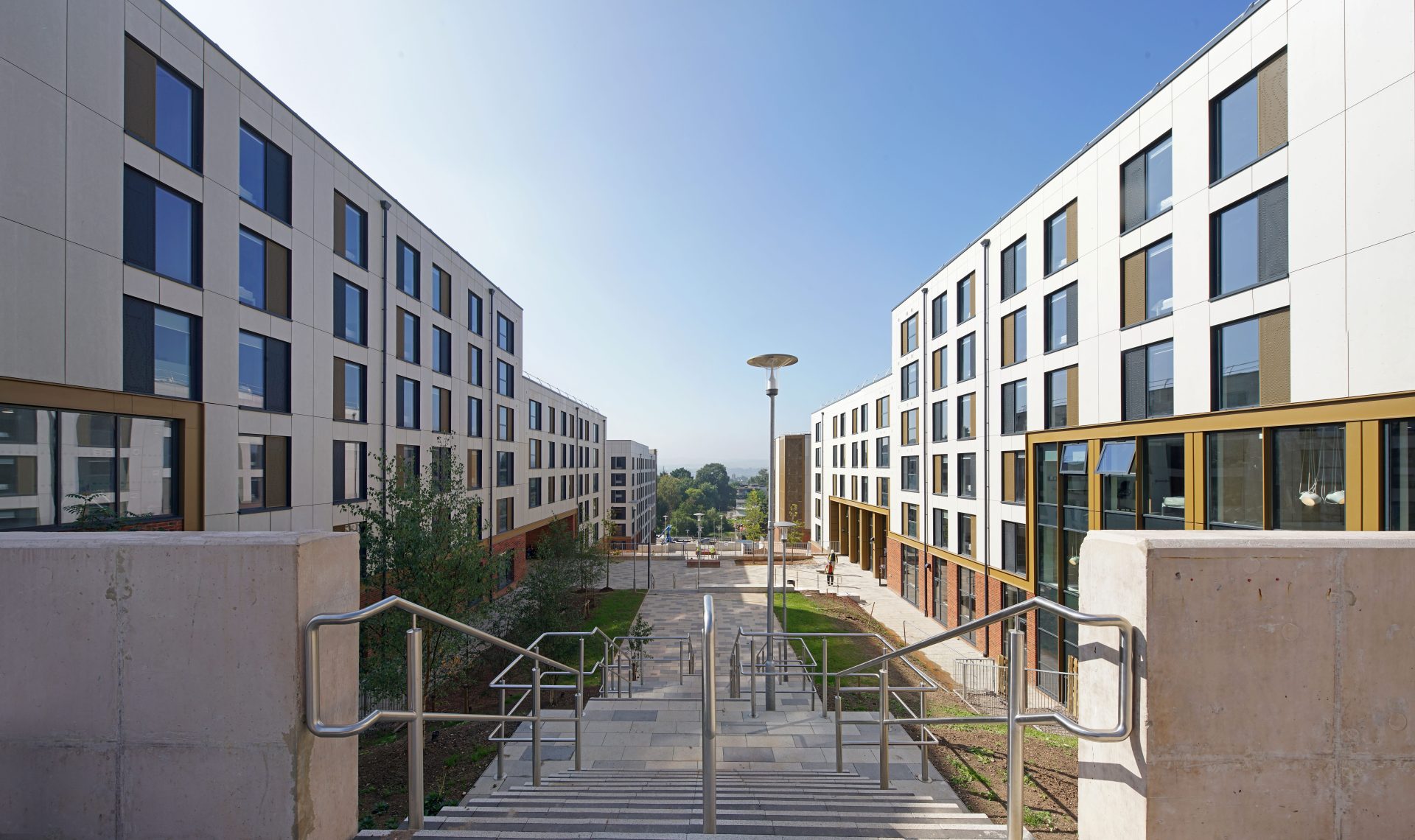Highlights:
- A 30% lower carbon footprint in comparison to typical student accommodation
- A model for sustainable student accommodation developed with social housing pioneers
- Student input into the accommodation design
- Awarded a BREEAM ‘Excellent’ rating
- Winner of a Green Gown Award in 2009
- Renewable materials and sustainable airtight timber
- Solar panel technology and movement sensor lighting to reduce energy waste
In 2007, working with our long-standing partner Lancaster University, we created a new, award-winning eco-student living concept for 963 new-build rooms. The BREEAM ‘Excellent’ rated residences sit at the heart of the campus and feature a teaching and learning resource that supports the University’s commitment to the environment.
Winner of a prestigious Green Gown Award in 2009, the accommodation incorporates high levels of environmental performance and significant social benefits, delivered at an affordable cost. The Eco-Residence was a model for sustainable student accommodation developed with social housing pioneers and UK community investment business, Accent.
The buildings were constructed using highly insulated, airtight timber panels, sourced from sustainably managed forests and renewable materials. Offsite construction methods included pre-constructed shower pods and panellised timber frame ‘cassette’ technology. Many energy saving systems were installed to help students live more sustainably, such as solar panels to generate energy from natural light, movement sensor lighting and rainwater recycling schemes.
The County and Grizedale Eco-Residences comprise both student townhouses and cluster flats, designed to ensure minimal emissions and feature real-time utility consumption monitoring which provide a sustainable yet comfortable living environment.
We recognise the important role that student accommodation providers, construction and the higher education sector play in helping the UK to achieve its Net Zero 2050 emissions target. Working with Professor Avi Friedman, Professor of Architecture at McGill University, the residences were designed to have a 30% lower carbon footprint in comparison to typical student accommodation. The carbon footprint per student per year in the first year of operation was 16% better than the design criteria and 30% better than building regulation requirements. Utilities data recorded at the same time showed a further 11.3% reduction in carbon emissions.
Key features include a design that purposely minimises the use of construction materials; to be energy and resource efficient; the use of sustainable and renewable construction materials; the minimisation and control of thermal space heating; ventilation with heat recovery; and minimised water usage.
By including student input into the design, the project showed a number of social benefits, resulting in an improved provision of shared social spaces, as well as lower rents, which have been controlled to reflect the reduced level of facilities management servicing required.





